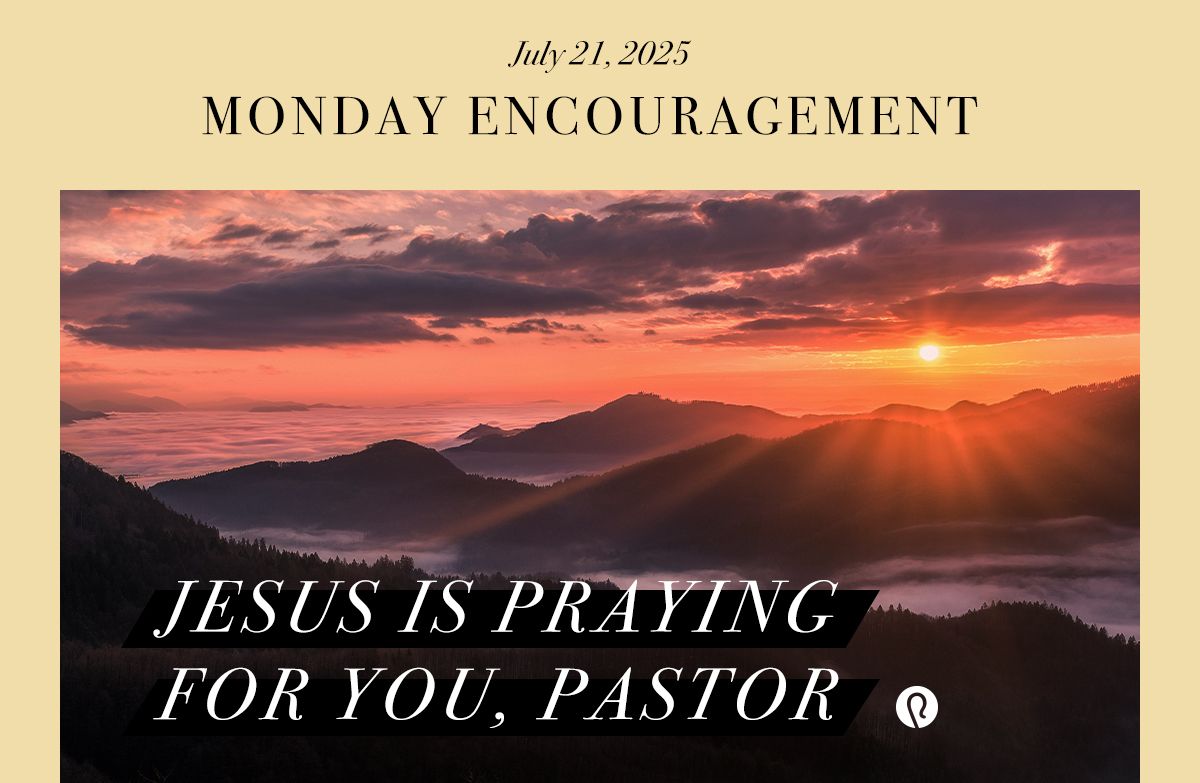FellowshipPreaching/TeachingLeadershipCelebrate RecoveryDiscipleshipSmall GroupsEvangelismWorshipMinistry
17 Tips for Staying Productive In Ministry

Pastors, we tend to share a lot throughout the year. Some of you are preparing two or three messages and presentations every week. When you repeat that process 52 times in a year, life gets exhausting. How do you stay motivated to keep going?
Let me share with you how I've managed to motivate myself. Here are seventeen things you can do to keep yourself motivated.
1. Put your plans on paper.
Write out what you want to accomplish. Spell it out. Dawson Trotman said, ”Thoughts disentangle themselves when they pass through the lips and the fingertips.” If I can say it and I can write it down, then it’s clear. If I haven’t written it down, then it’s vague.
A lot of us go around with anxiety which is this free-floating, vague fear that I’m not getting it all accomplished. Just the very fact of putting it down, a lot of times, gives credence and relief to your mind and you’re able to focus on it.
2. Break big tasks into small steps.
When I’m preparing a sermon, I think, “What do I have to do? I’ve got to collect the verses, study the verses, look for illustrations, think through quotes, organize the presentation.” Think through all the steps. Sermons don’t just fall out automatically. There are some logical things you have to go through.
3. Decide how you want to start
Ask yourself what needs to be done first.
4. Establish checkpoints and check your progress.
Set some deadlines. Write a date on each of the tasks.
5. Know the difference between "I can't" and "I don't want to."
It was Ben Franklin who first said, "There's no gain without pain." The secret of success in one sentence: Successful people have developed the habit of doing things unsuccessful people don’t feel like doing.
6. Remind yourself of the benefits of completing the job.
Jesus did this. The Bible says in Hebrews, that Jesus endured the cross because He looked to the joy beyond it. He looked beyond the cross and saw the result of it.
7. Do a small part of it right now.
In other words, Get started. Do a small part of it right now. Don’t stall. Take it a bite at a time and give it five minutes.
8. Be optimistic.
I have found this to be so important in accomplishing large amounts of activities and projects and programs. Optimism creates energy.
9. Establish and action environment.
Clear everything else off your desk except for the task at hand.
10. Avoid situations that might tempt you to procrastinate.
Avoid places or situations that distract you. That’s why I don’t do any of my sermon study at the office. The walls are really thin there and I can hear everybody having a good time outside and I’m a party animal. I want to have fun! I don’t want to be sitting and studying. I want to be out there with people. So I have to study at home to keep myself from having a great time with all these people I love at the office. And they appreciate it too!
11. Know your energy patterns and take advantage of peak times.
Some of you are morning people. Some of you are night people. Have you learned that at some points in the day, you are brighter than at other times? You’re more alert, you have more energy. There are times when you’re habitually at your best. The only people who are at their best all the time are mediocre people.
12. Recognize when indecision is creating inertia.
A lot of procrastination is not really procrastination, it’s indecision. A lot of pastors have to deal with this. Identify your choices and choose one. Don’t let it set around.
13. Use visible reminders.
I like to use Post-It Notes to remind me of things I’ve got to do. I collect anti-procrastination slogans, such as...
- Tomorrow is too late.
- Do the worst first.
- Doing gets it done.
- Tomorrow is never.
- Make the day count.
- Doing beats stewing.
- In just two days, tomorrow will be yesterday.
- Do it anyway.
- Get the Now habit.
- Get a “round tuit.”
- Be a doer not a dawdler.
- Why wait?
- If not today, when?
- You don’t find the time, you make time.
- Make it happen.
- If you have to do it, do it now.
- Do it or ditch it.
- Only turkeys procrastinate
- Lead-time is the gift only I can give myself.
- Beginning is half done.
- Move ahead or move aside
- Winners don’t wait
- Choose this day to use this day.







